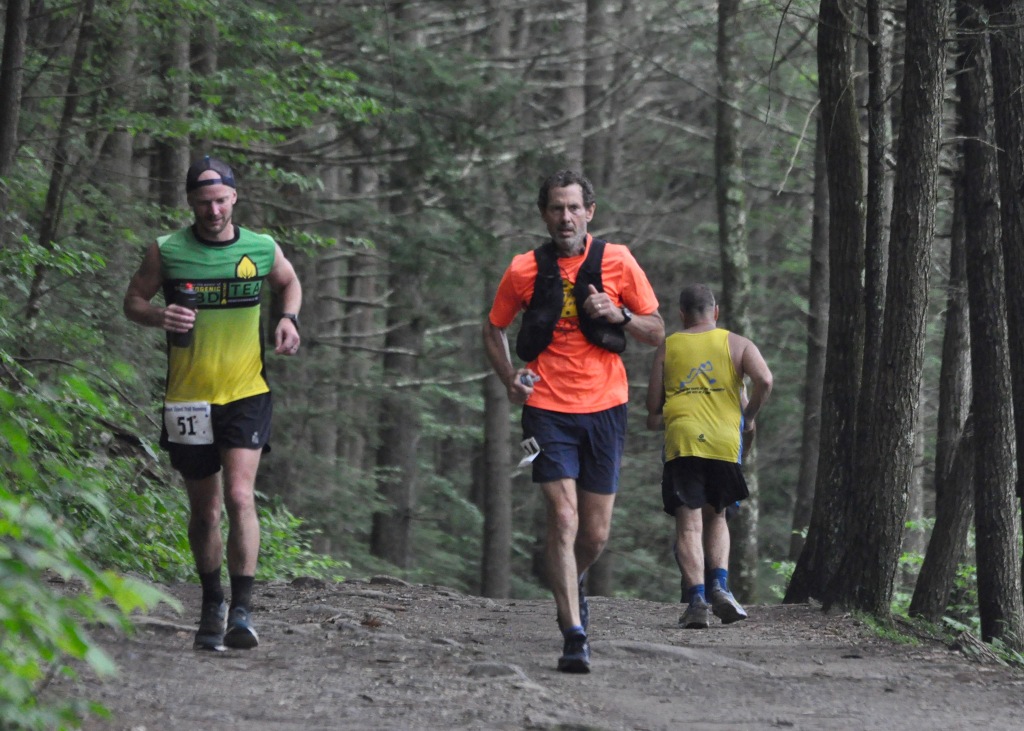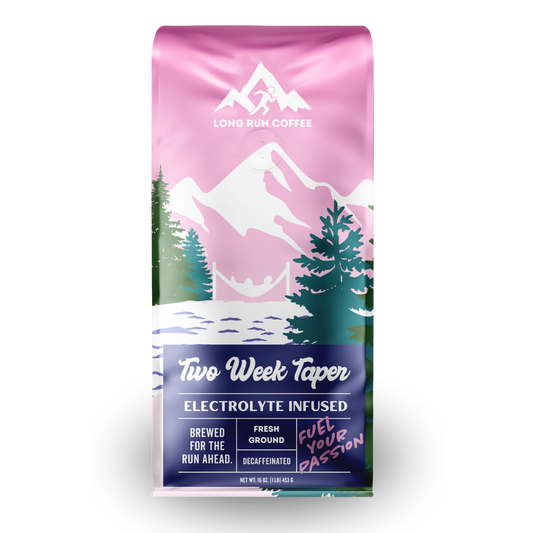
Ben & The Vermont 100
It was 4:00 am and Ben Simanski was standing in a country-side field in Vermont surrounded by several hundred other like-minded people…and horses, lots of horses. This was the starting line of the historic Vermont 100 trail race, which is a 100-mile simultaneous foot and horse race through the trails and dirt roads of beautiful Vermont in July. Every runner had the same smile on their face, the one that can’t wait to finally put years of training into use. At least that’s what Ben assumed. It was 12 years ago when he was diagnosed with Stargardt’s disease, which causes your central vision to rapidly degrade over time. In other words, Ben is legally blind.
“After law school, I noticed that I had to hold books and documents quite close to my face to read their contents. My wife, Kathleen, encouraged me to visit an optometrist. I made an appointment and that is when my world flipped.”
Shortly after his diagnosis he was forced to give up his license to drive. Seemingly overnight, Ben had lost two things most of us take for granted: vision and transportation.
“I had a choice to make, dwell on my losses or use them to my advantage. I chose, and always will, the positive option.”
In law school, Ben had put on extra weight he wasn’t happy with. After graduating, he turned to running as his main form of exercise and lost 70 pounds.

“When I lost my license, I made running my mode of transportation. I wanted to go places without putting the burden on my family to take me. The distances I traveled continued to grow and that’s when I found ultrarunning.”
Ben recalls learning about the Zeigarnik Effect, which suggests that people remember uncompleted or interrupted tasks better than completed ones. Ben takes pride in adapting to change, which is arguably the hardest part of competing in ultrarunning. He recalls his first, and only “Did Not Finish” (DNF).
“I was at mile 91 of the Skydive 100 Ultra in Florida. I live in New England and assumed I could handle cold Florida weather in January. I was wrong! I had to drop out due to hypothermia when the weather turned to rain and heavy winds.”
The next day, Ben started making changes to his training schedule.
“Stopping my race was the right decision medically, but mentally I hated making that choice. I immediately changed my training schedule to incorporate the lessons I learned from that loss. Oddly enough, the feeling of failing was more motivating to me than any race I’ve completed.”
Ben believes his vision impairment is a motivator and not a hindrance. It has helped mold him into the best version of himself.
“I think that my vision impairment allows me to be much more understanding as a person and athlete. It keeps me focused on the fact that there are no excuses, just challenges. I do not know who I would be without my vision impairment. I truly love that I see the world with self-made rose colored glasses.”
Just under 24 hours later Ben approached the same field he started his Vermont 100 journey, this time to finish the race. He thought of his wife, Kathleen, and their son, William, and the love and support they have for each other. He also thought of everything this sport has provided him and his gratitude for it.
“Ultrarunning has taught me how to learn from and build on my failures. Life can be tough sometimes. But if you look at the pain and challenges as part of the joy then it’ll always work out for the best.”
















